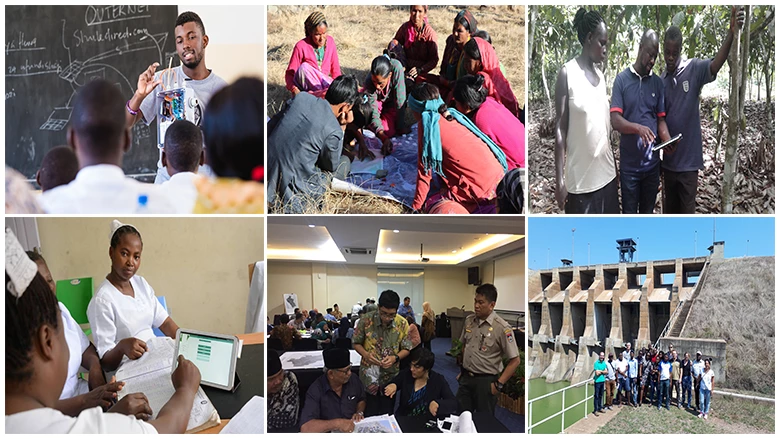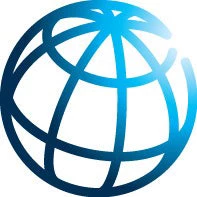How can data be used to improve disease outbreak warning, urban planning, air quality, or agricultural production? Seven winning projects, which will receive support from the third round of funding for collaborative data innovation projects, do just that and more.
Following the success of the first round of funding in 2017 and the second round of funding in 2018 the World Bank’s Development Data Group and the Global Partnership for Sustainable Development Data launched the Collaborative Data Innovations for Sustainable Development Fund’s third round in June 2018.
This round called for ideas that had an established proof of concept that benefited local decision-making. We were looking for projects that fostered synergies, and collaborations that took advantage of the relative strengths and responsibilities of official and non-official actors in the data ecosystem.
The winning data-driven projects tackle issues like disease outbreak, urban sanitation, urban planning, air pollution, agriculture, and more. Each project will include a knowledge-sharing and lessons learned component, to encourage a catalytic effect on a country’s capacity and enabling further innovation and impact.
This initiative is supported by the World Bank’s Trust Fund for Statistical Capacity Building (TFSCB) with financing from the United Kingdom’s Department for International Development (DFID), the Government of Korea and the Department of Foreign Affairs and Trade of Ireland.
1. Urban Planning Tools as Agents of Change: Collaborative spatial data for sustainable urban development (Indonesia)
This project aims to create evidence-driven planning in Indonesian cities to disrupt the status quo of slow and rigid planning processes. It will do so by producing disaggregated data and integrating national planning standards and survey and census results with global data sets and satellite imagery. It will promote an ecosystem approach that establishes data governance for disrupting institutional siloes. The approach will also support the use of geospatial data for decision-making. It will encourage the use of urban planning tools to simplify complex planning and urban management processes by helping cities analyze the patterns of urban growth and infrastructure gaps.
Lead Organization: World Bank City Planning Labs
2. Retrospective Analysis of Electronic Versus Manual Health Data and Disease Surveillance Records for Implications of Outbreak Management in LMICs using Nigeria as a Case Study (Nigeria)
This research project will explore how electronic data regimes allow more accurate, timely and complete data for health policy and strategy, especially to manage disease outbreaks. The research will evaluate publicly available paper or manual data entry method health records and disease surveillance data on epidemic prone diseases versus electronic data collection from Lagos State and Ondo State.
Lead Organization: Instrat Global Health Systems
3. AFRICA: Citizen science using sensor data to tackle deadly environmental dangers by producing actionable information (Kenya, Nigeria, Tanzania)
This research project aims to gather actionable information regarding air pollution. It will obtain and analyze real-time data from low-cost sensors (including from citizen science networks), which measure and monitor the quality of air in communities in Kenya, Nigeria, and Tanzania. The project methodology also includes the development of interactive courseware and supporting training materials on ways to use low-cost hardware and open source software tools to collect and evaluate new air quality data.
Lead organization: Code for Africa
4. Digital and Spatial Technologies for Disaster Governance (Nepal)
This research project will explore and analyze the use of readily available open data sources (including open geospatial mapping) and open computing resources relevant to the Global Facility for Disaster Reduction and Recovery’s (GFDRR) disaster risk assessments and preparedness strategies in Nepal. The project will develop a prototype risk assessment and visualization tool.
Lead organization: Practical Action Consulting
5. HydroPC: Hydrological Forecasting using publicly available data (Mozambique)
This research project will use new sources of open data (including geospatial data, cloud computing, and open platforms) to help interpret (extreme) hydrological events. To support decision-making on drought risk reduction and flood response, the project will combine global data with official local data to develop practical, sustainable, and state-of-the-art technologies for hydrological forecasting and mapping.
Lead organization: HKV Consultants
6. Map to the Future (M2F): Integrating soil mapping into cocoa farm development plans (Ghana)
This project will research whether more and better local (survey) data on soil conditions can be consistently combined with global (geospatial) data to deliver more accurate and timely data that is relevant for use by smallholder cocoa farmers. The project analyses will include an integration of indicators already collected through the FarmGrow application with the open data collected using the LandPKS mobile application to develop a methodological framework to determine the value of site-specific soil information for applications such as FarmGrow.
Lead organization: Grameen Foundation USA
7. Assessing the accessibility of urban sanitation data in Antananarivo, Madagascar (Madagascar)
This project will conduct research and consider possible options on methods to mobilize, analyze and visualize geospatial data on urban sanitation in Antananarivo, where two-thirds of the people live in informal settlements without basic sanitation. To address the lack of publicly available sanitation data and lack of standards to share the data among key actors, the project will complete an inventory, propose a data standard, and create interactive maps to aid urban sanitation planning.
Lead organization: Gather Hub Ltd.




Join the Conversation